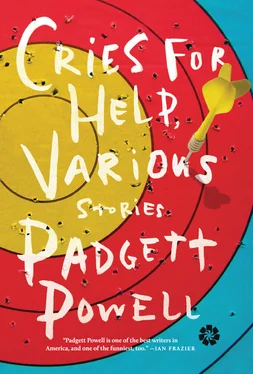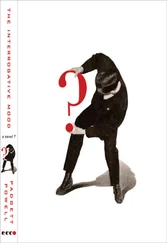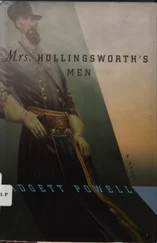Charlie Dickens raised his hand when the teacher asked someone to describe the weather. Most of the children had merely looked out the window and begun forming the notion that it was so obvious what the weather was that the teacher was either trying to trick them or was retarded. But Charlie was the kind of kid that would step into a trick with a smile and save them all from it. Despite his weirdness, they liked him. Many smart alecks you despised but Charlie was so far out there you could not despise him for being smart. He was some kind of twilight-zone smart and he would use it, as in the present weather trick, to protect them all. “The weather?” Charlie was saying. “Implacable November weather. As much mud in the streets as if the waters had but newly retired from the face of the earth, and it would not be wonderful to meet a Megalosaurus, waddling like an elephantine lizard up Holborn Hill. Smoke lowering down from chimney-pots, making a soft black drizzle, with flakes of soot in it as big as full-grown snowflakes — gone into mourning, one might imagine, for the death of the sun. Dogs, indistinguishable in mire. Horses, scarcely better; splashed to their very blinkers. Foot passengers—”
“Charlie—”
“No, Ma’am, I can’t put it in other words.”
“Very well. Good job. You may be seated.”
The children had been on the verge of erupting in a kind of excitement she had not seen of them before. Perhaps it was the Megalosaurus. They had helped her resist the force of Charlie Dickens before this adventure, but now it seemed they might be swinging to him, and if they wholeheartedly began to support Charlie’s flights her classroom could go completely out of control. The only child who seemed self-possessed, actually, was little Janis Joplin, who had calmly studied Charlie during his weather broadcast without squirming or giggling or otherwise beginning to vibrate to his lunacy.
Ms. Turner, as she was known to the children, was a private woman with an interest in biology that had gotten derailed. She had not gone to graduate school as she had hoped and now found herself inexplicably wrangling this small herd of mostly privileged children. She was fending off the unwanted advances of a coach from the middle school next door, a man who came round in polyester stretch pants and expensive-looking noisy athletic shoes trying to talk her into going out. This was an ordinary nuisance except that he, the coach, somehow reminded her of ordinary little Janis Joplin as she, Janis, sat there regarding the extraordinary Charlie Dickens. Ms. Turner had noticed this special regard Janis had for Charlie, and she knew what it was about, as phantasmagorical as that seemed for a child of Janis’s age: she was a sexual predator as surely as Coach Leech was. Richard Leech labored under the appellation Dick Leech, which did not make his life any happier. In a kind of blinding fatalism, Ms. Turner saw that her life was already fixed in this nothingness she was in and that she was not to escape it. This vision made things paradoxically a little easier to take: she might as well relax, and settle down. Thus she had come to let Charlie Dickens, for example, go on a bit more than she once had, short of his precipitating a riot among his peers with his performances, which struck them as tours de force of authority thwarting or nose thumbing. They could not, she didn’t think, distinguish between smart aleck and smart . As we have seen, she was wrong in this surmise. She could not know that the children sensed their own mundane trappedness there, as she sensed hers, and that they divined in Charlie Dickens’s excesses a chance that he would by them escape and go into an orbit they themselves would be denied. He was among them a kind of early astronaut, and they liked astronauts, of any kind. She was wrong too in her apprehensions of Dick Leech’s interests, because Dick Leech was as homosexual as balls were round, but Dick Leech is not within the scope of our concerns; forget him. Let’s forget Ms. Turner too. Things are happening.
A girl quieter than even Janis Joplin, if that is possible, named Gail Crutchfield, who lives at the orphanage with Charlie Dickens, and who wears the most out-of-date clothes the orphanage has to hand down — today a long red plaid dress belted at the waist with a belt of the same material that makes her look like a Rockwell mother in 1940—this Gail Crutchfield, who has not opened her mouth heretofore in any enterprise in or out of class, is standing up in her desk chair and smoothing down her dress and wringing her hands nervously. She is breathing as if to prepare for something she has to say. She begins then not to talk but to sing. And to sing well. Powerfully well. At first Ms. Turner does not know the song — Hank Williams’s “Your Cheating Heart”—then she is amazed that she has heard it all her life and never heard it like this. Coming from the mouth of eleven-year-old Gail Crutchfield (Gail has been held back and is older than the other children), it is spectral, not at all the bumpkin tune Ms. Turner had assumed it before.
Gail Crutchfield loses her nervousness entirely once she begins to sing. She concentrates on every note, and hits every note with authority, and uses a yodeling tremolo or vibrato where the song wants it, Ms. Turner does not know the musical term.
When she is done, the children, who have been fidgeting and making small efforts to distract her (a couple of paper balls have flown by her head), start howling derisively and clapping and booing at once, and Gail sits down, primly folding her hands and erectly staring forward, with one red-faced glance at Ms. Turner as if to apologize for interrupting the class. Gail Crutchfield seems embarrassed to have interrupted the class but not to have sung the song. She says, to whom Ms. Turner cannot tell, “Well, you asked me to.” This is the first and only hint as to how this performance has come about in her classroom. Gail Crutchfield has not received any notice from Ms. Turner before this moment beyond that she lives with Charlie Dickens and a boy named Martin at the orphanage across the street. Ms. Turner is beginning to suspect that weird things are afoot in the room. She occasionally has this sensation: that she is on a bus and doesn’t know where it is going, and hasn’t even known that she is on a bus, that’s how out of it she is. The phenomenon of Gail Crutchfield this morning has put her strongly in the bozo-on-the-bus frame of mind.
As he walks by the outside of the classroom after school, Charlie Dickens is whispered to loudly from the bushes under the windows the children stare out of all day. In the hedge is Janis Joplin, squatting down and hooking her finger at him. He goes in.
“Hey,” Janis says, and he says, “Hi.”
She kisses him wetly about his face. He is overwhelmed by her into a sitting position, legs straight out, Janis on all fours, going messily at him.
“My girl,” he finally manages to say. “You have laved me as a dog so starved for affection might confuse flesh for its proper food.” He is smiling because the odd displeasure of his cold wet face in the bushes outside the classroom, which should put him, he thinks, in an ill humor, is not putting him in an ill humor. Janis for her part is certain he has called her a dog, a thing she could have predicted, but notices that Charlie Dickens is smiling.
This she points out. “You are smiling, Charlie.”
“Indubitably and inexplicably. The confluence of our salivas I’d not have predicted could be less than odious, but it is. This world is strange, Miss Joplin.”
“You’re from the Baptist Home and you are the smartest boy in school, Charlie. That is strange to me.”
“Martin is smart in his way, and we must consider the early talent of Miss Crutchfield. What did you think of her today?”
Читать дальше












